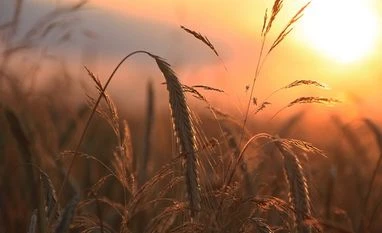Chhattisgarh surpasses target of rabi sowing, eyes rubber plantation
Officials in the agriculture department said rabi crops had been sown in 1.936 million hectares, which is more than the target of 1.925 million hectares
)
Listen to This Article
Chhattisgarh has surpassed the target it had set itself for sowing rabi crops.
Officials in the agriculture department said rabi crops had been sown in 1.936 million hectares, which is more than the target of 1.925 million hectares.
In the previous year, rabi crops were sown in 1.83 million hectares, officials said, adding that with a 5 per cent increase, a sowing target of 1.925 million hectares was set for the current season.
The state government discourages paddy sowing during the rabi season.
“Due to the arrangement for purchasing pulses on support prices and campaigning for those, the trend of pulses cultivation among farmers has increased rapidly,” an official added.
Also Read
Pulses were sown in 865,000 hectares this rabi season, accounting for 45 per cent of the area proposed for rabi cultivation this year.
According to the data compiled by the agriculture department, cereals were sown in 597,000 hectares, pulses seeds in 814,000 hectares, oilseeds in 284,000 hectares, sugarcane in 42,410 hectares, and vegetables and other crops in about 200,000 hectares.
Besides, wheat sowing in 271,000 hectares, maize in 171,000 hectares, ragi in 35,000 hectares, and coarse grains in 155,000 hectares have been completed in the state.
As part of crop diversification, which is reportedly yielding good results, the Chhattisgarh government is considering rubber plantation. The Rubber Research Institute, Kottayam, will conduct experimental farming of rubber in a hectare in the Bastar region.
The Indira Gandhi Krishi Vishwavidyalaya, Raipur, and the Kottayam institute have signed an agreement on this. According to the agreement, the rubber institute will bear the expenditure, including that for plant, manure, fertilisers, pesticides, and manual labour for seven years. The institute will also provide technical guidance on extracting rubber. The plantation will be managed, however, by the Vishwavidyalaya.
The vice-chancellor of Indira Gandhi Krishi Vishwavidyalaya, Girish Chandel, said rubber had been providing appreciable profits. Scientists of the institute have found the soil, weather, and geo-ecology suitable for the cultivation of rubber, he said.
More From This Section
Topics : Chhattisgarh Rabi crops rubber Farming
Don't miss the most important news and views of the day. Get them on our Telegram channel
First Published: Apr 10 2023 | 7:30 PM IST
